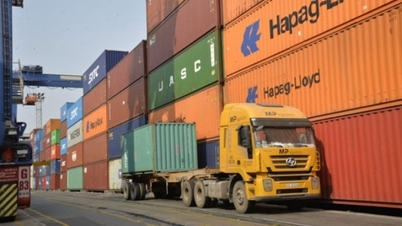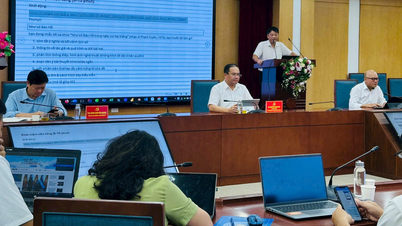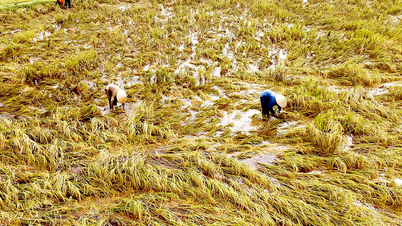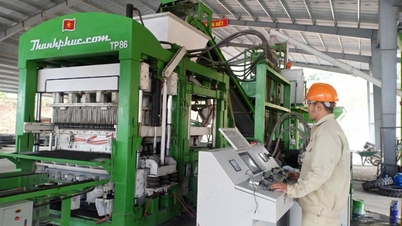On the morning of August 8, the Vietnam Federation of Commerce and Industry (VCCI) and the Vietnam Beer - Alcohol - Beverage Association held a workshop on the draft Law on Special Consumption Tax (amended) and the beverage industry.

Mr. Dau Anh Tuan - Deputy Secretary General and Head of the Legal Department of VCCI - said that tax laws play an important role for industries, in which the beverage industry is directly and greatly affected by this draft.
It is necessary to fulfill tax obligations but there needs to be a suitable roadmap.
The draft has added taxable objects for sugary soft drinks, and sharply increased taxes on beer and alcohol products. Mr. Tuan said that tax obligations are necessary but need to be accurate, convincing and linked to business efficiency.
"The proposed tax needs to have a suitable roadmap to ensure the stability of business operations. The policy needs to be based on arguments, have scientific basis, and have an overview. The goal of imposing the tax is to increase budget revenue, but will consumption decrease, people's health, employment, and industry competition be affected?" - Mr. Tuan asked.
From management practice, Mr. Nguyen Duc Le - Deputy Director of the Department of Market Management (General Department of Market Management) - said that the tax increase will be good news for business and production people. beverage illegal, due to increased profits.
Because legally produced alcohol products must comply with many regulations such as tax laws, laws on prevention of alcohol harm, environment, quality standards, advertising and marketing.
Meanwhile, illegal drinks do not have to comply with these regulations, so the imposition of taxes makes it easier for low-quality products, counterfeits and smuggled goods to mix into the market. It is worth noting that the cases of inspection, control, detection of violations and punishment related to low-quality drinks are still limited.
Ms. Bui Thi Viet Lam (representative of the US-ASEAN Business Council) also said about the situation. ale Informality is a global problem. According to statistics Euromonitor found that 1 in 4 bottles of beverages are illegal, accounting for 25%, causing governments in many countries to lose billions of dollars in tax revenue (3.6 billion USD/year), posing a health risk to consumers.
From another perspective, Dr. Nguyen Minh Thao - Head of the Department of Business Environment and Competitiveness Research (CIEM) - said that the study assessed the impact of applying the policy of increasing tax by 10% on sugary soft drinks, the elasticity coefficient of labor and capital with the industry decreased by 1.03%, meaning the production scale of enterprises would be significantly narrowed.
Big impact on many manufacturing industries?
In terms of economic impact, imposing a 10% tax on this industry will impact 24 related industries, and the economy's GDP will decrease by 0.5% (based on 2022 data), equivalent to a loss of VND 27,800 billion.
With indirect taxes, in the first year, this source of revenue will increase, but from the second year it will decrease by 0.495%, equivalent to a budget reduction of 5,200 billion VND. This will lead to a decrease in revenue from 25 manufacturing industries, causing direct taxes to decrease by about 3,200 billion VND and a decrease of 2,000 workers.
Mr. Can Van Luc - chief economist of BIDV - said that imposing taxes can increase revenue in the early stages, but the overall effect in the medium and long term is unclear. For example, increasing taxes on sugary drinks may not necessarily reduce obesity rates, because there are many other causes of this condition.
Or a sharp increase in taxes with alcoholic beverages can cause a long-term reduction in budget revenue and create difficulties for businesses in the industry and related fields such as business, transportation, food services, tourism, etc. The current tax rate is also equal, so it is difficult to regulate consumer behavior.
"It is necessary to clarify the purpose of this tax increase, whether to increase revenue or regulate consumption. Ensure principles, benefits, responsibilities and feasibility, and fully evaluate the scientific and practical basis. Diversify revenue sources but should not collect all the revenue, but should nurture the revenue sources" - Mr. Luc suggested.
Source





![[Photo] Binh Trieu 1 Bridge has been completed, raised by 1.1m, and will open to traffic at the end of November.](https://vphoto.vietnam.vn/thumb/1200x675/vietnam/resource/IMAGE/2025/10/2/a6549e2a3b5848a1ba76a1ded6141fae)
































































































Comment (0)